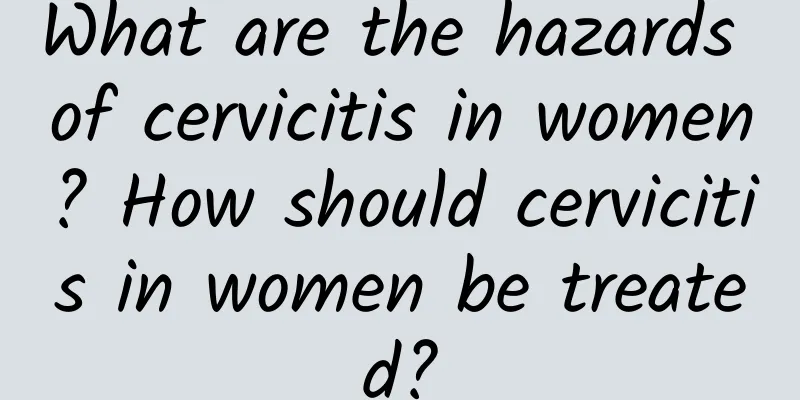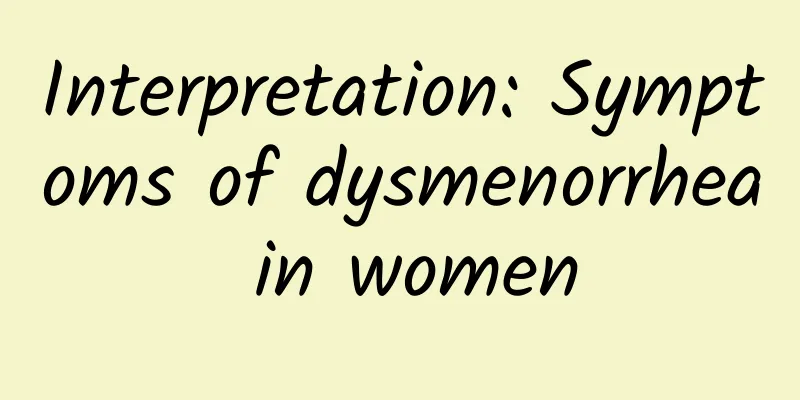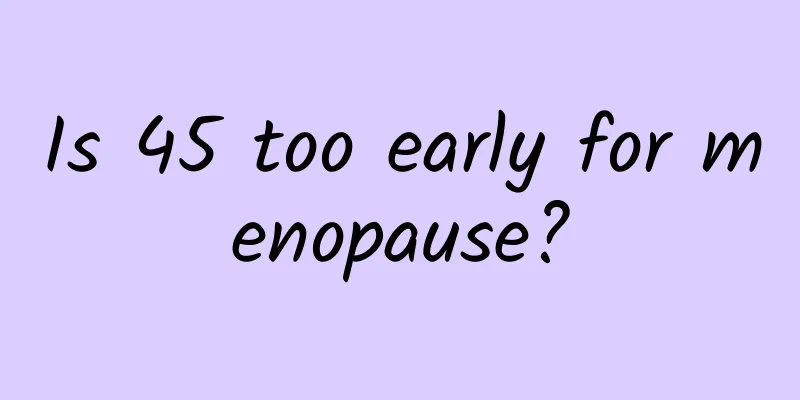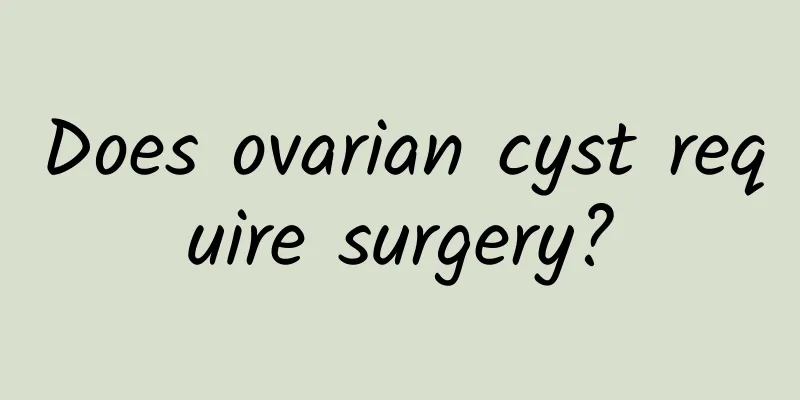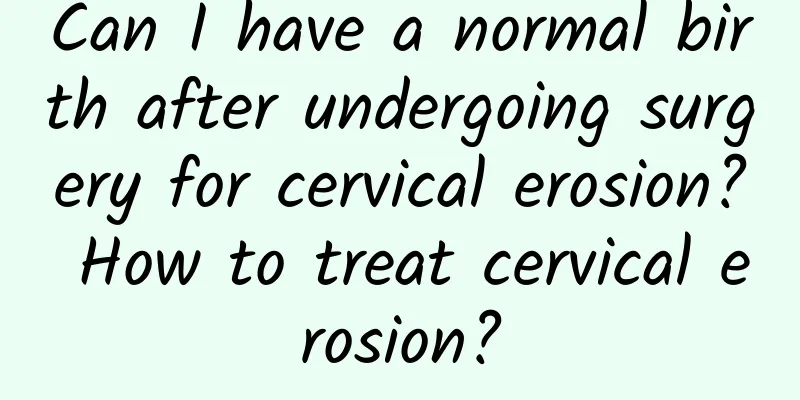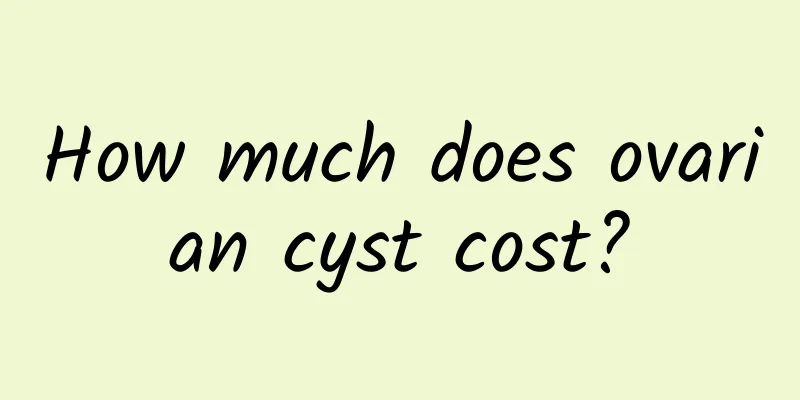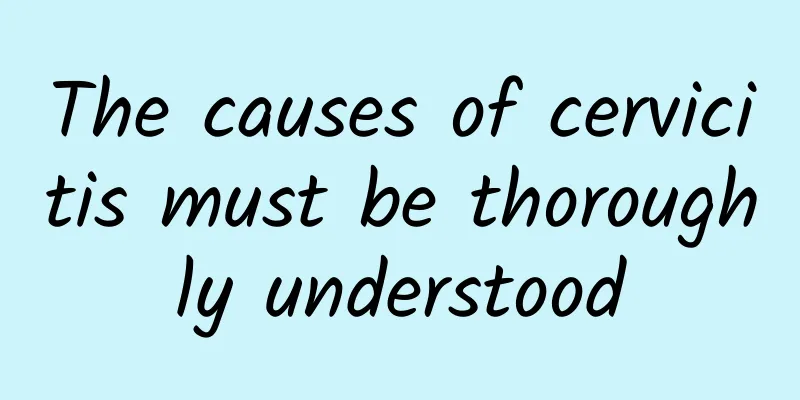Can long-term dysmenorrhea be cured?
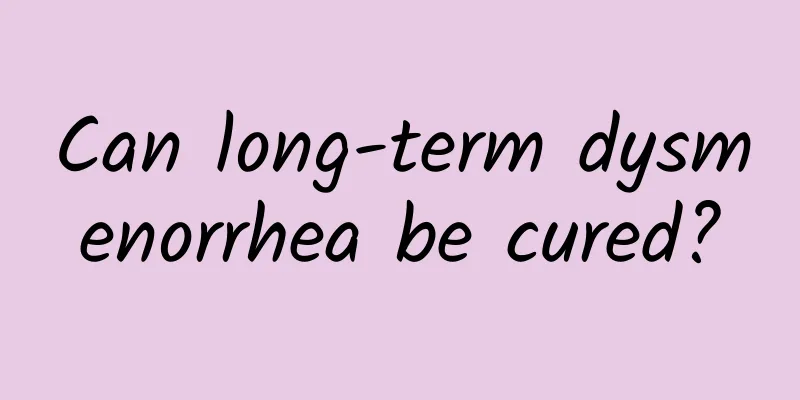
|
Can long-term dysmenorrhea be cured? The problem of dysmenorrhea often occurs in our lives, and it also disrupts the physical health and pace of life of female friends. Some women have been suffering from dysmenorrhea for a long time, repeatedly, and for a long time without healing, which makes patients physically and mentally exhausted. So, can long-term dysmenorrhea be cured? Dysmenorrhea can be cured, but it takes a certain amount of time to regulate. It cannot be achieved overnight. Some women suffer from dysmenorrhea all year round and think that the disease will accompany them for the first half of their lives. In fact, this is not the case. As long as patients pay enough attention and actively carry out treatment and conditioning, dysmenorrhea can be cured. To treat dysmenorrhea, we must first understand the different types of dysmenorrhea so that we can treat them according to different types. Generally speaking, dysmenorrhea is divided into primary dysmenorrhea and secondary dysmenorrhea, and the treatment methods for the two are different. Primary dysmenorrhea usually occurs 1 to 2 years after menarche, without obvious organic lesions; while secondary dysmenorrhea often occurs several years after menarche, and examination can reveal organic lesions. Among dysmenorrhea, primary dysmenorrhea is the most common, and dysmenorrhea in teenage years is mostly primary dysmenorrhea. Primary dysmenorrhea is very painful, mainly due to the stimulation of prostaglandins on the smooth muscles of the uterus, or the blockage of the cervical opening by large pieces of endometrial shedding during menstruation. "Primary" means that it has been with women since teenage years, so patience is required to cure primary dysmenorrhea. Establish good eating and living habits, especially avoid eating raw, cold, spicy foods such as peppers 3 to 5 days before menstruation. Eat a diversified diet and eat more blood-activating and qi-regulating foods such as shepherd's purse, coriander, ginger, and carrots. Maintain an optimistic mood and overcome negative psychological cues such as "menstruation will hurt again." Many women with primary dysmenorrhea will gradually experience dysmenorrhea after childbirth or marriage, so don't give yourself the psychological suggestion that you will have dysmenorrhea when your period comes. When dysmenorrhea occurs, symptomatic treatment can be used. Atropine tablets and diazepam tablets can be taken to relieve pain, but medication must be taken under the guidance of a doctor. Do not take medication blindly to avoid causing bad consequences. If the pain cannot be relieved for a long time, appropriate Chinese medicine syndrome differentiation and conditioning can be performed. In addition, drinking some hot brown sugar ginger water will also have a good effect. |
<<: What are the treatments for ovarian cysts?
>>: How long does it take to cure pelvic inflammatory disease?
Recommend
Measures to prevent pelvic peritonitis
We all have a certain understanding of pelvic per...
What diet do patients with thick endometrium need?
Thickening of the endometrium may lead to irregul...
Eating salty and drinking sugary drinks during Chinese New Year can make you fat
During the Chinese New Year, many people's ho...
Brief description: knowledge related to primary dysmenorrhea
Among gynecological diseases, the incidence of pr...
Don’t underestimate the 10km road race! Patellofemoral pain syndrome may affect the upper body
Taiwanese are crazy about road running competitio...
Parents' waistlines are soaring, and children are obese. 3 steps to control waistline
Are overweight parents likely to raise fat childr...
Getting rid of varicose veins is very effective with yoga cow face pose
If you see lines on your calves that look like &q...
Can I use suppositories to treat inflammation before my period?
Can I use suppositories to treat inflammation bef...
How to prevent menopausal functional uterine bleeding?
Traditional Chinese medicine believes that women&...
Top 5 troubles for girls wearing underwear in summer, the third one is embarrassing! Is it you?
A few days ago, a patient named Xiaofang came to ...
3 Steps to Eat a Healthy Diet to Avoid Gaining Weight and Keep Your Metabolism at Rest
For those who are trying to lose weight, the bigg...
What causes uterine fibroid torsion? What causes uterine fibroid torsion?
What causes uterine fibroid torsion? What causes ...
Experts explain the symptoms of adnexitis
Many women are very concerned about this issue. I...
What does uterine effusion mean?
Experts point out that most patients with uterine...
Effective care for threatened abortion
What is the effective care for threatened abortio...
